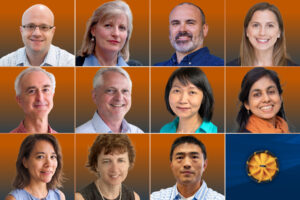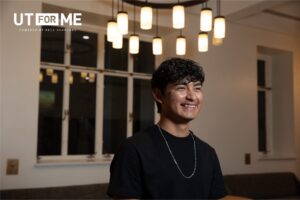AUSTIN, Texas—The Religious Studies Program at The University of Texas at Austin will present a series of lectures featuring Dr. Helen Rose Ebaugh, professor of sociology at the University of Houston, and Dr. Willard Oxtoby, emeritus professor of comparative religions from the University of Toronto.
Ebaugh’s lecture, “New Immigrant Religions in the American and Global Landscape” will be at 4 p.m., Feb. 10, in Garrison Hall, Room 1. This lecture is co-sponsored by the university’s Department of Sociology and Population Research Center.
Oxtoby will present three lectures Feb. 25-27 on “Islam in Historical Encounter.” These lectures, part of the American Academy of Religion’s American Lectureship in the History of Religions, will highlight the breadth of the culture and tradition of Islam, In addition, they will reflect more generally on problems of approach and method in the academic study of religion.
“Permanence and Change: Ninth-Century Iraq” will be at 7 p.m., Feb. 25, in the Peter T. Flawn Academic Center, Room 21. This lecture explores the transformations within early Islam as various thinkers sought to understand their religion in philosophically sophisticated terms. It also considers more general issues of the relation between faith and reason in religious traditions.
“Sufis and Hindus: Sixteenth-Century India” will be at 7 p.m., Feb. 26, in Garrison Hall, Room 1. The lecture will give insight into the experience of Muslims who ruled an Indian population composed mostly of non-Muslims. It will discuss the question of religious identity in a religiously diverse society. The specific Indian experience provides entrée to more general issues concerning religious boundaries and claims for the potential unity of religions.
“Heritage and Diaspora: 21st Century North American” will be at 7 p.m., Feb. 27, in the Peter T. Flawn Academic Center, Room 21. Muslim immigrants and converts in the West will significantly influence the history of Islam in the next hundred years. These North American Muslims from diverse homelands must consider how to interpret and implement their heritage in a new culture. The lecture compares the Muslim experience with that of other diaspora groups and reflects on the process of reassessment and redefinition of religious tradition.
“Islam in Historical Encounter” is sponsored by the College of Liberal Arts, the Religious Studies Program, the Center for Middle Eastern Studies and the Center for Asian Studies. All lecture sites are on the university campus. Maps of campus are available online.
For more information contact: Martha Newman, 512-475-7223.



